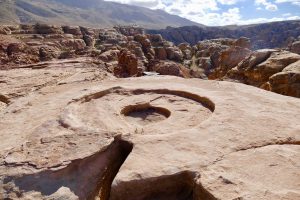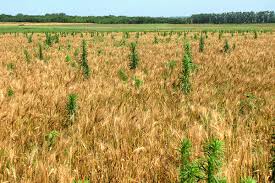HOMILY WEEK 16 06 – Year I
People of a New Covenant: Praise, Gratitude and Forgiveness
(Ex 24:3-8; Ps 50; Mt 13:24-30)
******************************************************
Are you married? Committed to a life-long friendship? You are in a covenant relationship.
The readings today designate us as a people of a new covenant comprised of praise, gratitude and forgiveness.
From the beginning of time, God has always desired an intimate covenant relationship with God’s people, that has evolved and developed over the ages. It begins with Adam and Eve (a couple), then Noah (a family), continues with Abraham (a tribe) and then Moses (a nation set apart) as in today’s first reading.
That covenant is archetypal – involving a theophany on a mountain, the writing of the Dabaror Words of God, the symbolism of the twelve tribes of Israel, a liturgy of the word (with some literary license involved, as the words Moses wrote down suddenly become a “book of the covenant”), animal sacrifice and a blood ritual, and finally the commitment of the people to “obey and do” the will of God (which we know they constantly failed to do).

Nabatean High Place of Sacrifice
This focus on animal sacrifice places the Israelites among the countless peoples around the world who did likewise – including the Napateans who flourished in Petra, Jordan, from 300 years before Christ to about 300 years after, as well as the Samaritans in Palestine who still practice animal sacrifice. The Aztecs, as well as other groups, took that notion of pleasing the gods with sacrifice to the radical extent of human sacrifice.
The psalm introduces a remarkable shift in that covenant – from animal sacrifice to a more internal relationship focused on praise of God and heartfelt gratitude: “Gather to me those of the covenant of sacrifice,” the psalmist speaks on God’s behalf, and have them offer a “sacrifice of praise and thanksgiving.”
Though not in the readings today, we know there was a similar shift with King David. The Mosaic covenant especially was a conditional covenant – keep the law and the people would be blessed; break the law and they would be cursed. God promised David God would be with him no matter what he did. And what did David do? Lust, adultery and arrange a murder – rather serious stuff.
When confronted by the prophet Nathan, however, David sincerely repented and experienced the unconditional nature of that covenant with God as pure forgiveness, an experience of love that transformed him into the only true King Israel ever had, prefiguring Jesus, which is why Jesus is referred to in the scriptures as the Son of David, never as the Son of Moses or Elijah.
 That brings us to the gospel where we are invited to “read between the lines” and see that same quality of covenant love in the parable of the wheat and the weeds. The mystery of evil in the world is portrayed as an enemy sowing weeds in the dark of night. The response of the master is not to ruthlessly pull out the weeds, but to patiently allow the wheat and weeds to grow together until the final harvest. This speaks to us of that patient, compassionate, forgiving heart of God seeking above all the repentance and conversion of sinners, and not their punishment and destruction.
That brings us to the gospel where we are invited to “read between the lines” and see that same quality of covenant love in the parable of the wheat and the weeds. The mystery of evil in the world is portrayed as an enemy sowing weeds in the dark of night. The response of the master is not to ruthlessly pull out the weeds, but to patiently allow the wheat and weeds to grow together until the final harvest. This speaks to us of that patient, compassionate, forgiving heart of God seeking above all the repentance and conversion of sinners, and not their punishment and destruction.
In a recent article, Ron Rolheiser OMI sheds interesting light in terms of spirituality on this parable of the wheat and weeds. A healthy spirituality, he writes, “needs to be predicated on a proper understanding of God, ourselves, the world, and the energies that drive our world. These are the non-negotiable Christian principles within which we need to understand ourselves, the world, and the use of our energies.”
First, he addresses the wheat: “God is good, God is the source of all energy everywhere, and that energy is good. Second, we are made by God, we are good, and our nature is not evil. Finally, everything in our world has been made by God and it too is good.”
Then he addresses the weeds: “So where do sin and evil enter? They enter in when we misuse the good energy that God has given us and they enter in when we relate in bad ways to the good things of creation. Simply put: We are good and creation around us is good, but we can relate to it in the wrong way, precisely through selfishness, greed, or violence.
Likewise, our energies are good, including all those energies that underlie our propensity towards pride, greed, lust, envy, anger, and sloth; but we can misuse those energies and draw upon life’s sacred fire in very self-serving, lustful, greedy, and wicked ways.
Sin and evil, therefore, arise out of the misuse of our energies, not out of the energies themselves. So, too, sin and evil arise out of how we relate to certain things in the world, not out of some inherent evil inside of our own persons or inside of the things themselves. The wicked aren’t evil persons drawing energy from the devil. They’re good people, irresponsibly and selfishly misusing sacred energy. The energy itself is still good, despite its misuse.
We don’t tap into evil energies when we give in to greed, lust, envy, sloth, or anger. No, rather we misuse the good and sacred energy within which we live and move and have our being. The wise and wicked both feed off the same sacred fire.” And so God allows wheat and weeds to grow together until the final harvest.
The Eucharist is an intimate covenant meal with our God in which we listen to God’s word, and then offer to God not the flesh and blood of animals, but the offering of God’s own Son. May our celebration move us from stressing dutiful sacrifice to attitudes of praise, gratitude, and non-judgemental compassion on those who struggle to sort out their weedy lives.




We are in a covenant relationship when we decided to believe in God and trust him that he will lead us to the promise land. This means we must obey God who created us to be Good and sinless; but it is easy for us to be tempted by evil and power. Well, yes we tend to misuse the good and sacred energy that God gave us . The wise and wicked both feed off the same fire; just like Satan always wants us to gain greed, lust, envy and anger or sloth. We just need to turn to God and trust him whenever we accomplish any difficulties and do not believe in false gods . We just need to follow the Law and Ten Commandments that God establish through Moses . During the New Covenant is Jesus Christ ; the Eucharist is an intimate covenant because the bread and wine is transformed into his own flesh body and blood of Christ . Whoever receives this communion accepts Jesus’ unconditional love , forgiveness, mercy and compassion. Jesus taught us to have forgiveness, love and gratitude or compassion towards other people. So, we are to support people who struggle to sort out their weedy lives. Amen . Praise to you Lord Jesus Christ
These is a beautiful and lovely message and teachings of living out the New Covenant by praise and worshipping God or Jesus Christ . We are to have gratitude and forgiveness towards other people by forgiving people who hurt us and love them with compassion. We are to love our enemies because we forgave them for their sins. Let us forget about the past and all negative thoughts and attitudes. Amen. Amen. Thanks Bishop Sylvain Lavoie . Gracias! Bravo!
???✝☮❤️?